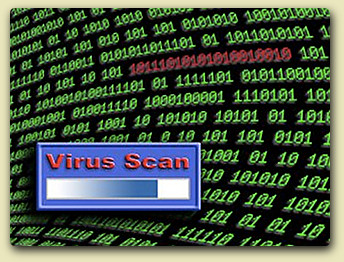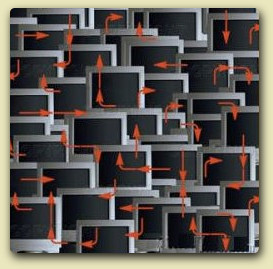What is Malware?
Malware, short for malicious software, is software designed to infiltrate a computer system without the
owner's informed consent. The expression is a general term used by computer professionals to mean a variety
of forms of hostile, intrusive, or annoying software or program code. The term "computer virus" is sometimes
used as a catch-all phrase to include all types of malware, including true viruses.
Software is considered malware based on the perceived intent of the creator rather than any particular
features. Malware includes computer viruses, worms, trojans, spyware, dishonest adware, crimeware, most
rootkits, and other malicious and unwanted software.
What is a Computer Virus?
A computer virus is a computer program that can copy itself and infect a computer. The term "virus" is also
commonly but erroneously used to refer to other types of malware, adware, and spyware programs that do not have
the reproductive ability. A true virus can only spread from one computer to another (in some form of executable
code) when its host is taken to the target computer; for instance because a user sent it over a network or the
Internet, or carried it on a removable medium such as a floppy disk, CD, DVD, or USB drive. Viruses can increase
their chances of spreading to other computers by infecting files on a network file system or a file system that
is accessed by another computer.
What is Spyware?
Spyware is a type of malware that is installed on computers and collects little bits of information at a time about
users without their knowledge. The presence of spyware is typically hidden from the user, and can be difficult to
detect. Typically, spyware is secretly installed on the user's personal computer. Sometimes, however, spyware such
as keyloggers are installed by the owner of a shared, corporate, or public computer on purpose in order to secretly
monitor other users.
While the term spyware suggests that software that secretly monitors the users computing, the functions of spyware
extend well beyond simple monitoring. Spyware programs can collect various types of personal information, such as
Internet surfing habits and sites that have been visited, but can also interfere with user control of the computer
in other ways, such as installing additional software and redirecting Web browser activity. Spyware is known to change
computer settings, resulting in slow connection speeds, different home pages, and/or loss of Internet or functionality
of other programs. In an attempt to increase the understanding of spyware, a more formal classification of its included
software types is captured under the term privacy-invasive software.
What is a Trojan?
A Trojan, sometimes referred to as a Trojan horse, is non-self-replicating malware that appears to perform a desirable
function for the user but instead facilitates unauthorized access to the user's computer system. The term is derived
from the Trojan Horse story in Greek mythology.
Trojans are designed to allow a hacker remote access to a target computer system. Once a Trojan has been installed on
a target computer system, it is possible for a hacker to access it remotely and perform various operations. The
operations that a hacker can perform are limited by user privileges on the target computer system and the design of
the Trojan.
Operations that could be performed by a hacker on a target computer system include:
- Use of the machine as part of a botnet (i.e. to perform spamming or to perform Distributed Denial-of-service (DDoS)
attacks)
- Data theft (e.g. passwords, credit card information, etc.)
- Installation of software (including other malware)
- Downloading or uploading of files
- Modification or deletion of files
- Keystroke logging
- Viewing the user's screen
- Wasting computer storage space
- Crashing the computer
Customized Network-Wide Security Systems
These days, security simply must be a system, not a patchwork. That doesn't mean it all has to
come from one CD, it means you have to get all the bases covered. Nothing, and yes, that means
nothing, can do it all alone. Security is a team effort: antivirus,
firewalls,
malware, trojan and spyware protection
at the minimum. The roster can vary, there is no right answer to those choices, but the positions
must be filled. There is always more than one approach to any computer issue, the right answer is
the one that works best for you. That is what we look for, the best answer for you, a system without
security holes but that is also not so secure that it needs IT staff on hand 24/7. Unplugged holes are
very easily climbed through, allowing your data to be rifled. And once you have a small infection,
guaranteed, it won't stay small for long. Get it taken care of sooner rather than later, because in
some cases, later is when you have already suffered financial loss due to data compromise or, worse,
identity theft.

 Save Up to 25% -
Check out our new Prepaid Service Plan
or, the ideal gift, our Gift of Service Plan
Save Up to 25% -
Check out our new Prepaid Service Plan
or, the ideal gift, our Gift of Service Plan



